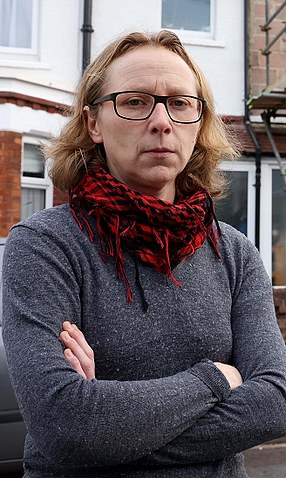Ponty
pfm Member
Where the hell is anyone going to live?
Good question. This is what happens when we sign up to ‘net zero’ without having the ability to deliver upon it. It’s going to cause absolute mayhem.
Where the hell is anyone going to live?
It is part of this which is still at discussion stage.just on rereading things i am not sure if this epc thing has been made law yet ? anyone clarify ??
this ruling that all rental will have to be epc C in 2025 will have massive implications for rental market
https://www.kingstonburrowes.com/news/blog/2025-epc-rule-changes-landlords-prepare/#:~:text=This will change in 2025,reached the new minimum standard.
many will give up and sell reducing rental stock
is it actually confirmed that this will come into effect ?
there may be grants but still going to be very expensive and impossible for many !!! one suggestion in one epc is party wall insulation which would mean smaller staircase gap, ripping out the kitchen and smaller bathroom and relocating the soil pipe
probably 15k of work
The approved contractors generally do a cowboy job, as low a cost to themselves as possible, you won't be wanting them back for more work (probably from out of area anyway) so it's all about ticking a box and submitting a bill.Grants are a waste of time and taxpayers money IME. The ‘approved’ contractor will be 3X the cost of getting it done yourself.
The approved contractors generally do a cowboy job, as low a cost to themselves as possible, you won't be wanting them back for more work (probably out of area anyway) so it's all about ticking a box and submitting a bill.
I can imagine the fun...the staircase could be too narrow for building regs, you need to remove and refit skirtings, maybe dado, could even need remake 100-year-old cornice, extend electrics, modify plumbing and refit radiators.there may be grants but still going to be very expensive and impossible for many !!! one suggestion in one epc is party wall insulation which would mean smaller staircase gap, ripping out the kitchen and smaller bathroom and relocating the soil pipe
probably 15k of work
I can imagine the fun...the staircase could be too narrow for building regs, you need to remove and refit skirtings, maybe dado, could even need remake 100-year-old cornice, extend electrics, modify plumbing and refit radiators.

Yep…our EPC suggested cavity wall insulation. We are have a tall 1904 semi with solid walls front and rear and a north facing gable end with a cavity…there’s a little damp in the cellar already, I dread to think what filling in the cavity would do. If we insulate from the inside there are all the other issues with party wall as per your post above. Given quantity of the housing stock being Victorian/Edwardian vintage in some areas, these sorts of issues will make insulating such buildings very costly and difficult. I believe this issue is severely underestimated.cavity wall insulation is another of their suggestions ... but i read this stuff and get put off . even known of house sales that fall through because of it
https://www.thisismoney.co.uk/money...ulation-ruining-homes-causing-damp-mould.html
The business model for buying (or is it renting?) on interest only depends on low interest rates. A few years of higher rates would reshape the market. We got used to very low interest rates over the 10 or 15 years. We may see a return to what were more normal rates of about 6%..if so the BTL multi-buy interest-only market will be dead. Just well-off investors will remain.Depends how much debt people have taken on really. Ah…
The business model for buying (or is it renting?) on interest only depends on low interest rates. A few years of higher rates would reshape the market. We got used to very low interest rates over the 10 or 15 years. We may see a return to what we’re more normal rate of about 6%..if so the BTL multi-buy interest-only market will be dead. Just well-off investors will remain.
